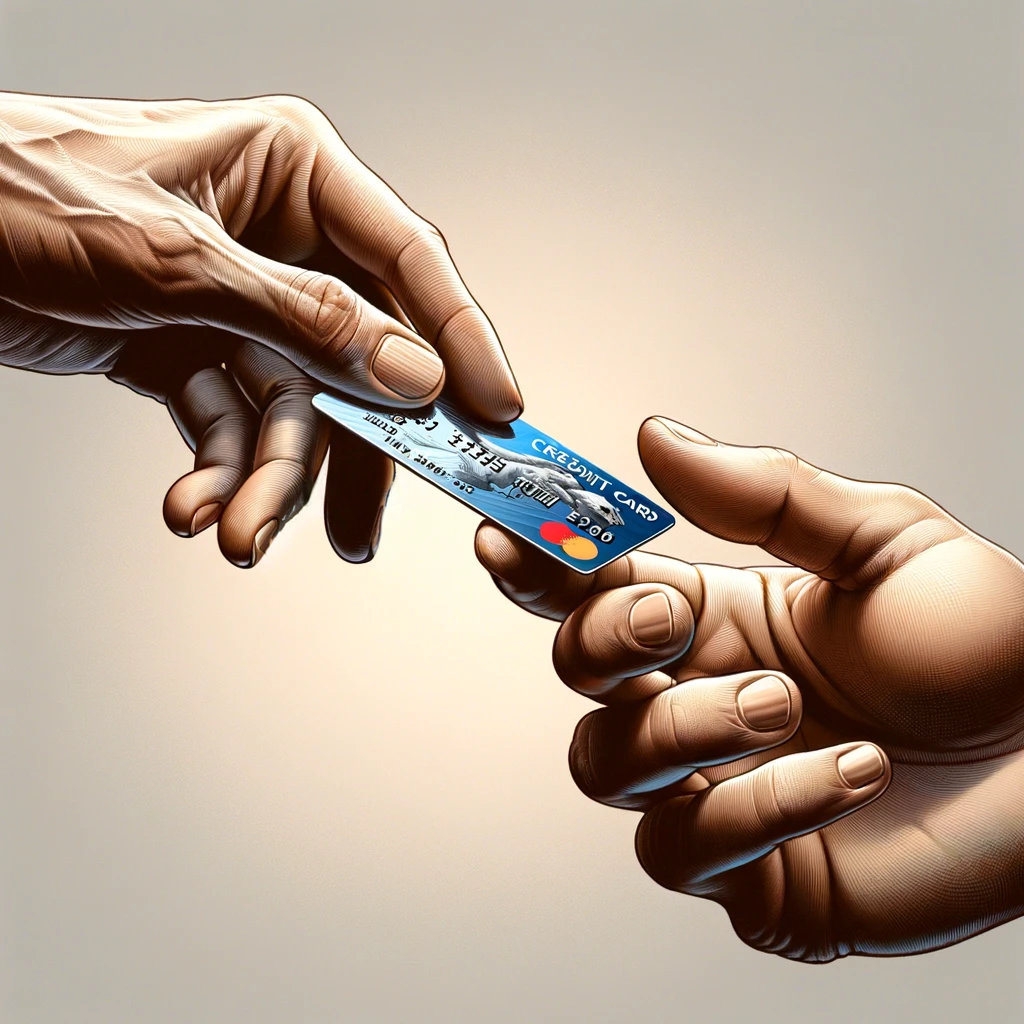Introduction
In today’s financial ecosystem, a credit score acts as a pivotal gateway to a multitude of opportunities, from securing loans with favorable terms to obtaining credit cards and even influencing rental agreements. Navigating this landscape requires a nuanced understanding of not just what a credit score is, but also how long it takes to establish one. As we delve into the intricacies of credit scores, it becomes evident that grasping the timeline for their formation is not merely a matter of curiosity but a fundamental aspect of sound financial planning. This knowledge empowers individuals to strategize their financial actions more effectively, ensuring they’re in the best possible position to leverage their credit when the need arises.
Understanding Credit Scores
What Is a Credit Score?
A credit score is a numerical representation of an individual’s creditworthiness, derived from an analysis of their credit files. It is essentially a tool used by lenders, landlords, and even employers to evaluate how likely an individual is to repay borrowed money or fulfill financial commitments. This three-digit score can significantly influence the interest rates on loans and credit cards offered to an individual, the approval process for housing, and in some cases, job eligibility. The higher the score, the more financially trustworthy a person is considered, opening doors to better financial products and opportunities.
How Are Credit Scores Calculated?
Credit scores are calculated using a variety of factors, each contributing to the overall picture of an individual’s financial reliability. The primary components include:
- Payment History (35%): This is the most influential factor and reflects whether you’ve made your past credit payments on time. Late payments, foreclosures, and bankruptcies can negatively impact your score.
- Credit Utilization (30%): This measures the amount of credit you’re using compared to your total available credit limit. Lower utilization rates are seen as indicators of responsible credit management.
- Length of Credit History (15%): Longer credit histories tend to be beneficial for your score as they provide more data on your borrowing behavior.
- Types of Credit in Use (10%): A mix of different types of credit accounts (e.g., mortgage, credit cards, and auto loans) can positively affect your score.
- New Credit (10%): Opening several new credit accounts in a short period can be seen as risky financial behavior, potentially lowering your score.
Understanding these components is crucial for anyone looking to improve their credit score or maintain their financial health. By managing these factors wisely, individuals can work towards achieving a higher credit score, which in turn, opens up new avenues for financial growth and stability.
The Timeline for Establishing a Credit Score
The Starting Point: Initiating Credit Activity
The journey towards building a credit score begins the moment you initiate credit activity. This can be through opening a credit card account, taking out a loan, or any other form of credit that gets reported to the credit bureaus. However, simply opening an account does not immediately result in a credit score. For a score to be generated, there must be enough information on your credit report to calculate your creditworthiness. This usually means having at least one account open for a minimum of three to six months, with activity reported to the credit bureaus during this time. Engaging in credit activity thoughtfully is crucial, as it sets the foundation for your future credit score, reflecting your early habits of credit usage and repayment.
The Credit Reporting Lag
Once you’ve initiated credit activity, a critical yet often overlooked factor comes into play: the credit reporting lag. This term refers to the period between when credit activity occurs and when it is reported and processed by the credit bureaus. Typically, lenders report to the credit bureaus every 30 to 45 days, but this can vary. Consequently, even after you’ve started using credit, it might take a few weeks to a couple of months for this information to reflect on your credit report and contribute to the generation of a credit score.
Understanding the credit reporting lag is essential for setting realistic expectations about how quickly you can establish a credit history. It’s not an instantaneous process but a gradual one that requires patience and consistent responsible credit behavior. During this initial phase, making timely payments and practicing good credit habits are paramount. These early months are your opportunity to lay a solid foundation for a strong credit score, which will serve you well in all your future financial endeavors.
Factors Influencing the Timeline
Type of Credit
The variety of credit you choose to engage with can significantly impact how swiftly you can establish a credit score. Credit cards and loans are two primary types of credit that can shape your credit history differently. For instance, credit cards, particularly if used responsibly—meaning you’re making purchases and paying off your balance on time—can help build your credit score relatively quickly. This is due to their revolving nature and how frequently they can show activity and repayment on your credit report.
On the other hand, installment loans (like auto loans or student loans) contribute to your credit mix and can also positively affect your credit score over time. However, the impact might be observed more gradually compared to credit cards because the repayment period is typically fixed and extends over a longer period. The key difference lies in how these credit types demonstrate your credit management skills. Regular, on-time payments over the life of a loan show a sustained commitment to managing credit, while credit cards provide a more immediate reflection of your ability to handle credit responsibly.
Frequency of Credit Activity
Regular credit activity is another critical factor that influences the timeline for generating a credit score. Engaging in credit transactions frequently (and responsibly) sends positive signals to the credit bureaus, showing that you’re an active participant in the credit system. This activity includes making purchases with a credit card and paying the balance in full or maintaining a low credit utilization ratio.
However, it’s essential to strike a balance. While frequent activity can help build your credit history, overuse or maxing out your credit cards can harm your credit score. High credit utilization—spending a large portion of your available credit—can be interpreted as financial distress, negatively affecting your score. Ideally, keeping your credit utilization below 30% of your available credit is advised to maintain and improve your credit score.
In summary, both the type of credit you use and how frequently you engage in credit activity play pivotal roles in establishing your credit score. By understanding these factors, you can more effectively navigate your path to building a strong credit history, ensuring you’re viewed favorably by potential lenders and creditors.
Accelerating the Process
In the journey to establish a credit score, there are strategies to potentially speed up the process, allowing individuals to demonstrate their creditworthiness more quickly. Two effective methods are through the use of secured credit cards and credit builder loans, and by becoming an authorized user on another person’s credit card.
Secured Credit Cards and Credit Builder Loans
Secured credit cards are a robust tool for those looking to build or rebuild their credit. Unlike traditional credit cards, secured cards require a cash deposit upfront, which usually serves as your credit limit. This deposit acts as security for the issuer and lowers the risk, making it easier for individuals with no credit or bad credit to get approved. By using a secured credit card for small purchases and paying off the balance in full every month, you can begin to establish a positive payment history that contributes to building your credit score.
Credit builder loans offer another pathway. Unlike traditional loans, with a credit builder loan, you make fixed payments to a lender, and the lender deposits those payments into a savings account. Only after the loan term ends do you get access to the money. These loans are designed to help people with little or no credit history by demonstrating the ability to make regular, on-time payments, thus building credit.
Becoming an Authorized User
Becoming an authorized user on a family member or a trusted friend’s credit card account can also accelerate the process of establishing a credit score. When you’re added as an authorized user, the account’s credit history is added to your credit reports. If the primary account holder has a history of on-time payments and maintains low credit utilization, this positive information will contribute to your credit profile.
It’s important for both parties to understand the implications of this arrangement. The primary cardholder is ultimately responsible for any charges on the account, so trust and communication are key. For the individual looking to build credit, it’s a chance to benefit from the positive credit actions of the primary cardholder without the responsibility of managing the account.
Both strategies—secured credit cards and credit builder loans, along with becoming an authorized user—provide actionable steps for individuals eager to establish their credit history more rapidly. By carefully managing these tools and ensuring all payments are made on time, individuals can lay down a solid foundation for a healthy credit score.
Realistic Expectations and Patient Building
Embarking on the journey to establish a credit score requires a blend of strategic actions and patience. While the allure of quick fixes can be tempting, understanding and setting realistic expectations for the timeline involved plays a crucial role in achieving long-term financial health.
The Typical Timeline
The process of establishing a credit score from scratch generally spans from three to six months of credit activity. This time frame allows enough data to accumulate on your credit report, from which a credit score can be calculated. It’s essential to note that this is a foundational period; while a score might be generated, continuing to build and improve your score will be an ongoing process.
Credit bureaus need to see evidence of consistent and responsible credit use over time to provide a more accurate score. Thus, the initial score you receive acts as a starting point—it reflects your financial behavior during a relatively short period and will evolve as your credit history grows.
The Importance of Patience and Responsible Credit Use
In the quest to build a strong credit score, patience is more than a virtue—it’s a necessity. Credit scores are designed to provide a long-term view of your creditworthiness, which means they’re inherently slow to change. Quick-fix strategies might offer a temporary boost, but they cannot replace the value of consistent, responsible credit use over time.
This includes making payments on time, keeping credit utilization low, and carefully managing the types of credit you use. It also means avoiding common pitfalls, such as applying for multiple credit accounts in a short period, which can lead to hard inquiries that temporarily lower your score.
Moreover, understanding that building a credit score is a marathon, not a sprint, can help set the stage for financial decisions that benefit you in the long run. This perspective encourages a focus on maintaining healthy credit habits that not only aim to improve your score but also enhance your overall financial well-being.
By embracing patience and committing to responsible credit use, you’re not just working towards a number on a report—you’re cultivating a financial reputation that will open doors to opportunities well into the future. Remember, a strong credit score is a reflection of disciplined financial behavior over time, and the effort you put into building and maintaining it will pay dividends in many aspects of your life.
Conclusion
In wrapping up our exploration of the credit-building journey, it’s clear that establishing a credit score is a process that requires both informed strategies and patience. From understanding the foundational aspects of what a credit score is and how it’s calculated, to navigating the initial steps of initiating credit activity and managing the factors that influence your credit-building timeline, each phase plays a crucial role in shaping your financial future. The use of tools like secured credit cards, credit builder loans, and the strategic move of becoming an authorized user can accelerate the process, but the essence of building a solid credit score lies in consistent, responsible financial behavior. As you embark on or continue your credit journey, let the insights shared here guide you towards making informed decisions that pave the way for a strong and healthy financial standing. Remember, the path to a robust credit score is built one responsible step at a time, laying a foundation for financial opportunities and security in the years to come.
Frequently Asked Questions
Can checking my credit score too often impact my credit?
A common concern is whether frequently checking your credit score can negatively impact it. The good news is that checking your own credit score is considered a soft inquiry and does not affect your score. Soft inquiries allow you to monitor your credit health without any penalty, encouraging regular check-ups. This is different from hard inquiries, which occur when lenders check your credit for lending decisions and can slightly lower your score. Therefore, you can and should check your credit score regularly to stay informed about your credit status and to catch any potential issues early.
How can I check my credit score?
Checking your credit score has become increasingly straightforward and accessible. Many credit card issuers and financial institutions offer free credit score access to their customers as part of their service offerings. Additionally, there are reputable online platforms where you can sign up to view your credit score and credit report at no cost. These services often provide additional features, such as credit monitoring and tips for improving your credit score. It’s important to use reputable services to ensure your personal information is secure and to avoid services that might charge unnecessary fees or require you to sign up for paid subscriptions.
What if I don’t have a credit score yet?
If you discover you don’t have a credit score yet, it’s likely because you haven’t engaged in credit activity that has been reported to the credit bureaus, or your activity has been too recent. In this case, starting your credit journey with strategies mentioned earlier, like obtaining a secured credit card, applying for a credit builder loan, or becoming an authorized user on someone else’s credit card, can help you begin establishing your credit history. Remember, it takes a few months of credit activity to generate enough history for a score to be calculated, so patience and responsible credit use during this time are key. Establishing a credit score opens up a new world of financial possibilities, making it a worthwhile endeavor for anyone looking to build their financial future.



